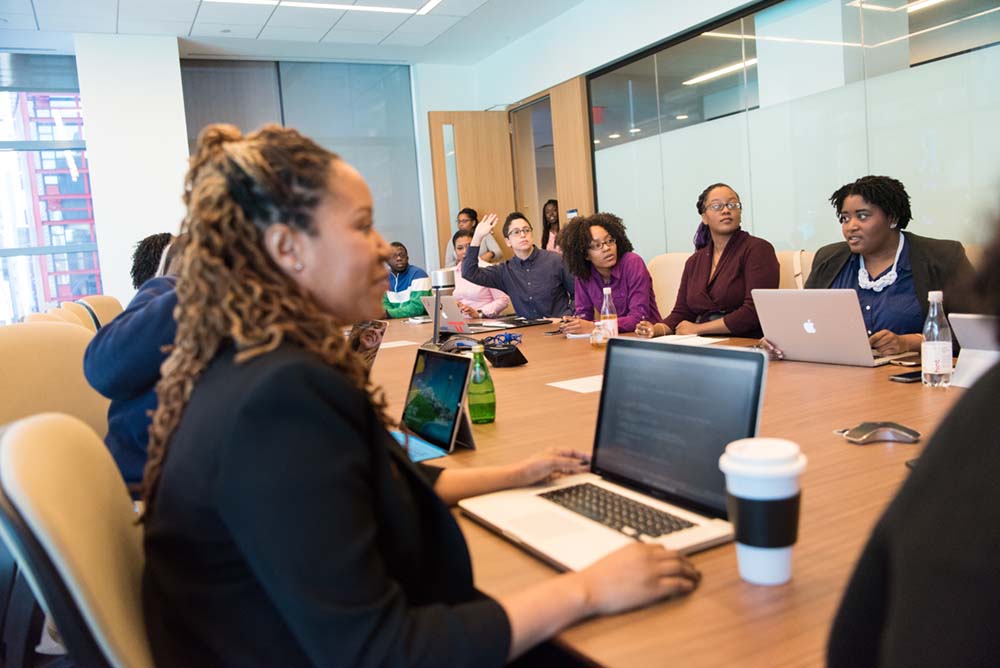Unveiling the Superiority of Custom Web Development in Kenya

In the ever-evolving digital landscape of Kenya, web development stands as the backbone of online presence. This blog delves into the compelling reasons why opting for custom web development in Kenya is not just a choice but a strategic advantage.
Tailored Solutions for Unique Requirements
Custom web development allows tailored solutions, addressing the unique needs and objectives of individual businesses.
Off-the-shelf solutions may offer generic features, but a custom approach ensures the website aligns precisely with specific business goals.
Unparalleled Flexibility and Scalability
Custom web development provides unparalleled flexibility, allowing businesses to adapt to changing requirements seamlessly.
Scalability is inherent in custom solutions, ensuring that as a business grows, the website can evolve to accommodate increased traffic, features, and functionalities.
Enhanced Performance and Efficiency
Performance is paramount in the digital realm, and custom web development excels in delivering optimized websites.
Tailored coding and architecture result in faster loading times, enhanced user experiences, and overall improved efficiency compared to generic solutions.
Robust Security Measures
Security is a top concern in the digital age, and custom web development offers robust and tailored security measures.
Custom-built websites can implement advanced security features, protecting sensitive data and ensuring compliance with industry-specific regulations.
Seamless Integration with Third-Party Services
Custom web development facilitates seamless integration with third-party services and APIs.
Businesses can integrate tools, plugins, and services that are crucial to their operations, fostering a more streamlined and efficient workflow.
Reflecting Brand Identity and Values
A custom website is a canvas for expressing and reflecting the brand identity and values of a business.
From design elements to user interactions, every aspect of a custom-built website can be aligned with the unique personality of the brand.
Cost-Effectiveness in the Long Run
While the initial investment for custom web development may seem higher, the long-term cost-effectiveness is undeniable.
Generic solutions often come with ongoing licensing fees and limitations, while custom websites provide ownership and eliminate recurring costs.
Future-Proofing Your Digital Presence
The dynamic nature of the digital landscape requires businesses to future-proof their online presence.
Custom web development allows for the incorporation of emerging technologies and ensures the website remains relevant and competitive in the long run.
Unrivaled User Experience User experience is a make-or-break factor for online success, and custom web development is tailored for unparalleled user experiences.
Intuitive navigation, personalized features, and a user-centric design contribute to a website that captivates and retains visitors.
Elevating Your Digital Presence with Custom Web Development
In conclusion, custom web development in Kenya is not just a choice but a strategic investment.
From tailored solutions and enhanced flexibility to robust security and cost-effectiveness, the advantages of custom web development are paramount for businesses looking to thrive online.


In the dynamic realm of web design, deadlines are not mere milestones but the heartbeat that propels projects forward. In this blog, we explore the pivotal role project deadlines play in the operations of a web designer company, deciphering why they are the linchpin of success.
The Synchronicity of Project Deadlines
Project deadlines are the heartbeat of a web designer company, synchronizing efforts and ensuring cohesive progress.
Timely milestones create a rhythm that keeps the team focused, fostering collaboration and efficient workflow.
Deadlines provide a roadmap, transforming abstract goals into tangible achievements, steering the project toward success.
Client Expectations and Trust
Meeting project deadlines is synonymous with meeting client expectations, fostering trust and credibility.
A web developer company that consistently delivers on time not only satisfies clients but also builds lasting relationships.
Trust is the cornerstone of client satisfaction, contributing to positive referrals and sustained success.
Efficient Resource Management
Project deadlines act as a compass for resource management within a web designer company.
Efficient allocation of time and talent ensures that projects are executed seamlessly, optimizing productivity.
Deadlines guide the allocation of resources, preventing bottlenecks and ensuring a smooth project lifecycle.
Adapting to Evolving Technologies
The fast-paced nature of web design demands adaptability, and project deadlines drive this agility.
A web developer company that embraces evolving technologies meets deadlines and stays ahead of industry trends.
The pursuit of timely deliveries encourages continuous learning and innovation within the design team.
Client Satisfaction and Repeat Business
The link between project deadlines and client satisfaction is undeniable.
A web designer company that consistently delivers on time not only satisfies clients but also increases the likelihood of repeat business.
Meeting deadlines is a testament to professionalism, encouraging clients to return for future projects.
Employee Morale and Motivation
Project deadlines are not just external benchmarks but internal motivators for the design team.
A web designer company that values and meets deadlines boosts employee morale, instilling a sense of accomplishment.
Meeting project milestones fosters a positive work environment, promoting creativity and dedication among team members.
Overcoming Challenges Through Effective Planning
Challenges are inevitable in web design, but project deadlines serve as anchors in turbulent times.
Effective planning, driven by deadlines, allows a web designer company to anticipate and overcome obstacles.
Deadlines transform challenges into opportunities for growth, ensuring projects stay on track despite unforeseen hurdles.
Harnessing Success Through Timely Deliveries
In conclusion, project deadlines are the compass guiding a web designer company toward success.
From client satisfaction to efficient resource management and employee motivation, the importance of meeting deadlines cannot be overstated.
Contact us today for web design excellence:
- Tel/WhatsApp: +254-721-585-355
- Email: sales@acesolutionafrica.com


In the dynamic digital landscape of Kenya, a web designer’s skillset is the compass guiding the creation of impactful online experiences. This blog delves into the essential skillset that sets apart a proficient web designer, ensuring they navigate the ever-evolving world of web design with finesse and innovation.
Proficiency in Graphic Design
At the core of a web designer’s skillset lies a proficiency in graphic design.
Mastery of tools like Adobe Creative Suite enables designers to craft visually compelling and cohesive web interfaces.
From logos to layout elements, a keen eye for aesthetics is the foundation of a memorable website.
HTML, CSS, and Beyond
A web designer in Kenya must be well-versed in the languages that bring designs to life.
HTML and CSS proficiency is non-negotiable, forming the backbone of a website’s structure and styling.
Understanding JavaScript and other scripting languages enhances a designer’s ability to create dynamic and interactive web experiences.
Responsive Design Expertise
In an era dominated by diverse devices, responsive design is a paramount skill.
Web designers must ensure that websites adapt seamlessly to various screen sizes, guaranteeing a consistent user experience.
Expertise in frameworks like Bootstrap enhances a designer’s capability to create fluid and adaptable designs.
User-Centric Design Thinking
A profound understanding of user-centric design principles distinguishes a skilled web designer.
Conducting user research, creating user personas, and prioritizing accessibility ensure websites cater to the needs of the target audience.
User-centric design thinking is the cornerstone of creating websites that resonate with and engage users effectively.
SEO Fundamentals
A skilled web designer in Kenya is attuned to the fundamentals of SEO (Search Engine Optimization).
Optimizing website elements for search engines ensures that the website ranks favorably, driving organic traffic.
Knowledge of SEO best practices empowers a designer to create websites that are not just visually appealing but also discoverable.
Effective Communication Skills
Beyond technical prowess, effective communication is a hallmark of a successful web designer.
Clear communication with clients, team members, and stakeholders is crucial for understanding project requirements and ensuring smooth collaboration.
Good communication fosters a collaborative environment, leading to the creation of websites that align with client expectations.
Continuous Learning and Adaptability
The digital landscape evolves rapidly, and a skilled web designer embraces a mindset of continuous learning.
Staying updated on emerging technologies, design trends, and industry best practices is essential for staying ahead of the curve.
Adaptability is the key to thriving in an ever-changing environment, ensuring that a designer’s skillset remains relevant and cutting-edge.
Conclusion: Crafting Excellence in Web Design
In conclusion, the skillset of a web designer in Kenya extends far beyond technical proficiency.
Mastery of graphic design, coding languages, user-centric principles, SEO, effective communication, and a commitment to continuous learning collectively define excellence in web design.
Contact us today for expert web design services:
- Tel/WhatsApp: +254-721-585-355
- Email: sales@acesolutionafrica.com


Creating a website design in Kenya is a pivotal step toward digital success. However, ensuring your website functions seamlessly across different browsers is often overlooked. In this guide, we explore the significance of cross-browser compatibility in website design, ensuring your audience experiences the full potential of your online presence.
Understanding Cross-Browser Compatibility
Cross-browser compatibility refers to a website’s ability to function consistently across various web browsers.
Consider that users may access your website using different browsers like Chrome, Firefox, Safari, or Edge.
Ensuring compatibility guarantees a uniform experience, irrespective of the browser your audience prefers.
The Impact on User Experience
A seamless user experience is at the heart of cross-browser compatibility.
Users shouldn’t encounter functionality issues or distorted layouts when switching between browsers.
Consistency fosters trust and encourages visitors to explore your website more extensively.
Ensuring Consistent Functionality
Each browser interprets code differently, potentially leading to functionality discrepancies.
Testing your website across multiple browsers identifies and resolves compatibility issues before they impact user experience.
This proactive approach guarantees a consistent, functional, and reliable website for all visitors.
The Role of Responsive Design for website design in Kenya
Responsive design plays a crucial role in achieving cross-browser compatibility.
A responsive website design in Kenya adapts its layout and features to different screen sizes and resolutions, enhancing the user experience.
This adaptability is especially vital as users access websites on a variety of devices and screen sizes.
Cross-Browser Testing Strategies
Comprehensive testing is key to ensuring cross-browser compatibility.
Regularly test your website on popular browsers, ensuring compatibility with both current and older browser versions.
Automated testing tools and manual checks help uncover and address any compatibility issues efficiently.
Overcoming Challenges in Compatibility
Challenges may arise, but overcoming them is essential for a successful online presence.
Stay informed about browser updates and emerging technologies to proactively address potential compatibility issues.
Engage with professional web developers to implement effective solutions for your unique website requirements.
Future-Proofing Your Website design in Kenya
Adopt a future-proof mindset by continually monitoring and adapting to changes in browser technologies.
Regularly update your website’s codebase to align with the latest standards, ensuring ongoing compatibility.
A future-proof website guarantees a lasting and positive user experience.
Elevating Your Online Presence
In conclusion, cross-browser compatibility is the cornerstone of a reliable and user-friendly website.
Prioritize this aspect of website design to provide a consistent, seamless experience for all your visitors.
Contact us today for expert website design in Kenya:
- Tel/WhatsApp: +254-721-585-355
- Email: sales@acesolutionafrica.com


Collaborating with a web designer in Nairobi is an exciting step towards establishing a strong online presence. However, misunderstandings can arise. This guide addresses a common concern: what to do when your designer doesn’t fully comprehend your requests. Discover practical strategies to navigate challenges and ensure your web design journey stays on track.
Clarify Your Expectations
When faced with a lack of understanding with your web designer in Nairobi, clarity is your ally.
Revisit your initial communication and restate your expectations, ensuring they align with the project’s goals.
Break down complex ideas into simpler terms, making it easier for your web designer to grasp your vision.
Provide Visual References
Visual aids can bridge communication gaps and offer a clearer vision.
Compile mood boards or examples from other websites to visually represent the elements you want in your design.
Annotations on design mock-ups can further illustrate your preferences and expectations.
Request a Mock-Up or Wireframe
If verbal or written explanations fall short, request a visual representation.
Ask your designer to create a mock-up or wireframe of the design, providing a tangible representation of your expectations.
This allows for a more concrete discussion about specific design elements and functionalities.
Prioritize Effective Communication
Open and honest communication is the key to resolving misunderstandings.
Schedule a meeting or call to discuss your concerns and allow your designer to share their perspective.
Consider alternative communication channels that might facilitate a clearer understanding.
Seek Clarifications Promptly
Address misunderstandings as soon as they arise to prevent complications down the road.
If a design element doesn’t align with your vision, ask for clarifications promptly.
Waiting until later stages may result in more significant revisions and delays.
Collaborate on a Solution
Approach the situation as a collaborative effort to find a solution.
Discuss potential alternatives and be open to compromise, finding a middle ground that satisfies both parties.
A collaborative mindset fosters a positive working relationship.
Bring in a Third Party if Necessary
If communication challenges persist, consider involving a neutral third party.
This could be a project manager, mediator, or another individual who can provide objective insights.
Their fresh perspective might help bridge the communication gap.
Conclusion: Strengthening Your Collaboration
In conclusion, challenges in communication are a natural part of any collaboration.
By adopting proactive strategies and maintaining open communication, you can overcome misunderstandings and ensure a successful web design journey.
Contact us today for expert web design services:
- Tel/WhatsApp: +254-721-585-355
- Email: sales@acesolutionafrica.com


Embarking on a new website design project e or revamping and existing website with web designer in Kenya is an exciting venture, but effective collaboration is key. This guide focuses on two essential aspects: what to ask during your initial consultation and how to provide meaningful feedback throughout the design process. By mastering these skills, you’ll ensure a harmonious partnership and a website that perfectly reflects your brand.
The Power of a Strategic Consultation with a web designer in Kenya
A successful web design project starts with a well-structured consultation.
Begin by inquiring about the designer’s process, understanding timelines, and exploring their unique design approach.
Discuss their experience with similar projects and request examples to gauge compatibility with your vision.
Clarifying Scope and Expectations
Clearly defining project scope and expectations is vital for a smooth collaboration.
Ask your web designer in Kenya about the number of revisions included in the package and the estimated timeline for project completion.
Discuss communication expectations, including frequency and the preferred method of contact.
Unveiling Design Preferences
Understanding your design preferences is crucial for aligning visions.
Inquire about preferred color schemes, visual aesthetics, and examples of websites that resonate with your brand.
Share insights about your target audience and discuss any specific functionalities integral to your business.
Budget Transparency and Additional Costs
Transparency about budget and potential additional costs is essential for financial clarity.
Ask your web designer in Kenya about ongoing maintenance or support packages and associated fees.
Discuss payment terms and milestones throughout the project to avoid any financial surprises.
Ensuring Effective Communication
Effective communication is a cornerstone of successful collaboration throughout the design process.
Inquire about the preferred method for providing feedback and the frequency of project updates.
Establish a clear point of contact for any questions or concerns that may arise during the design journey.
Mastering Feedback
Providing constructive feedback is an art that enhances the design process.
Start by acknowledging elements that work well before addressing areas that may need adjustment.
Use clear, descriptive language to communicate your thoughts and prioritize feedback for streamlined revisions.
Elevating Your Design Collaboration
In conclusion, effective consultations and feedback with your web designer in Kenya are the foundation of a successful design collaboration.
By mastering the art of asking insightful questions and providing constructive feedback, you ensure your website truly aligns with your brand.
Contact us today for expert web design services:
- Tel/WhatsApp: +254-721-585-355
- Email: sales@acesolutionafrica.com


As Kenya emerges as a digital innovation hub, the impact of web design Kenya in shaping a global online presence cannot be overstated. With a keen focus on user experience and cutting-edge design, Kenyan web designers are redefining digital landscapes and propelling businesses onto the global stage. From Nairobi to Mombasa, the prowess of Kenyan web design is swiftly gaining recognition and influence on a global scale.
In a world where digital presence is non-negotiable, the artistry and functionality of Kenyan web design are setting new standards and pushing the boundaries of creativity. This article delves into the awe-inspiring journey of web design in Kenya, exploring the groundbreaking trends, unparalleled creativity, and the strategic fusion of culture and modernity, crafting a digital narrative that captivates the world.
Join us as we unravel the remarkable story of how Kenyan web design is redefining digital presence and leaving an indelible mark on the global stage.
The importance of web design in today’s digital landscape
In today’s hyperconnected world, a compelling digital presence is the cornerstone of success for businesses and individuals alike. A well-crafted website serves as a virtual storefront, a 24/7 marketing tool, and a direct reflection of a brand’s identity. It is the digital handshake that introduces a business to the world, making the significance of web design paramount. Effective web design goes beyond aesthetics; it encompasses intuitive navigation, seamless functionality, and an immersive user experience that leaves a lasting impression.
Web design directly influences how users perceive a brand, interact with its content, and ultimately make purchasing decisions. A thoughtfully designed website not only captures attention but also encourages engagement, fosters trust, and drives conversions. It is the bridge that connects businesses with their target audience, transcending geographical boundaries and cultural differences. In essence, web design serves as the digital ambassador that communicates a brand’s values, offerings, and unique selling propositions to the global market.
As the digital landscape continues to evolve, web design remains a dynamic and indispensable tool for businesses seeking to carve out a competitive edge. It is not merely a virtual placeholder but a strategic asset that amplifies brand visibility, cultivates brand loyalty, and propels business growth in the ever-expanding digital realm.
The impact of website design on user experience and brand perception
User experience (UX) lies at the heart of effective web design, dictating how visitors navigate and interact with a website. A seamless user experience is characterized by intuitive interfaces, efficient functionality, and compelling visual elements that collectively enhance usability and satisfaction. Every aspect of web design, from layout and typography to color schemes and multimedia integration, plays a pivotal role in shaping the user’s journey and overall perception of a brand.
A well-crafted website not only captivates users visually but also guides them through a seamless and intuitive navigation experience. It anticipates user needs, simplifies complex processes, and ensures that every interaction is meaningful and purposeful. By prioritizing user experience, web designers can create immersive digital environments that resonate with visitors, foster positive sentiments, and drive engagement and conversion rates.
Furthermore, web design significantly influences brand perception, as it serves as a visual representation of a brand’s identity, values, and personality. Consistent branding elements, compelling storytelling, and visually appealing design aesthetics collectively contribute to shaping how a brand is perceived by its audience. Through strategic use of design elements, businesses can convey their unique brand voice, establish credibility, and differentiate themselves in a crowded digital marketplace.
Key elements of effective website design
Effective web design is a harmonious blend of artistry and functionality, seamlessly integrating visual appeal with user-centric features. Key elements of effective web design include responsive design, intuitive navigation, compelling visual content, clear calls to action, and strategic placement of information. Responsive design ensures that a website adapts seamlessly to various devices, providing an optimal viewing experience across desktops, tablets, and smartphones.
Intuitive navigation simplifies the user’s journey, allowing for effortless exploration and discovery of content. Compelling visual content, including high-quality images, videos, and infographics, enhances engagement and storytelling, while clear calls to action prompt visitors to take desired actions, such as making a purchase or submitting an inquiry. Strategic placement of information ensures that critical details are prominently featured, guiding users towards important information and conversion points.
In addition, web design should prioritize accessibility, ensuring that all users, including those with disabilities, can navigate and interact with the website effectively. By adhering to web accessibility standards, web designers can create inclusive digital experiences that cater to a diverse audience while complying with legal requirements and ethical considerations.
The evolution of web design in Kenya
The evolution of web design in Kenya mirrors the rapid technological advancements and digital transformation sweeping across the country. From the early days of static HTML websites to the current era of dynamic and interactive web experiences, Kenyan web designers have embraced innovation and embraced global best practices while infusing their unique cultural perspectives into their work.
The proliferation of internet connectivity, the rise of digital entrepreneurship, and the growing demand for online services have fueled the evolution of web design in Kenya, giving rise to a vibrant community of creative professionals and digital innovators. As businesses across various industries recognize the pivotal role of digital presence, the demand for sophisticated and user-centric web design solutions has surged, driving the continuous evolution of design standards and practices.
Moreover, the accessibility of cutting-edge design tools, open-source platforms, and online resources has empowered Kenyan web designers to explore new frontiers of creativity and technical expertise. This democratization of design resources has not only expanded the capabilities of local designers but has also positioned Kenya as a formidable player in the global web design arena.
Notable trends and innovations in Kenyan web design
The landscape of Kenyan web design is characterized by a dynamic tapestry of trends and innovations that reflect the fusion of traditional aesthetics with modern design principles. From vibrant color palettes inspired by the rich cultural heritage of Kenya to sleek and minimalist interfaces that exude sophistication, Kenyan web designers are adept at intertwining heritage with contemporary sensibilities, creating visually captivating and culturally resonant digital experiences.
In addition, the integration of immersive multimedia elements, such as interactive animations, video backgrounds, and 3D graphics, has emerged as a hallmark of Kenyan web design, elevating websites from mere information hubs to immersive storytelling platforms. This embrace of multimedia-driven experiences has redefined how brands engage with their audience, fostering emotional connections and memorable interactions that transcend language barriers and cultural divides.
Furthermore, the emphasis on user-centric design principles, such as human-centered design and empathic UX, has propelled Kenyan web design to prioritize inclusivity, accessibility, and user empowerment. By placing the user at the center of the design process, Kenyan web designers have created digital experiences that resonate with diverse audiences, effectively bridging the gap between technology and human connection.
Success stories of Kenyan web design on a global scale
The impact of Kenyan web design extends far beyond national borders, with numerous success stories showcasing the global influence and recognition of Kenyan designers and agencies. From e-commerce platforms that cater to an international clientele to corporate websites that exemplify world-class design standards, Kenyan web design has proven its ability to compete and excel on a global stage.
Notable success stories include collaborations between Kenyan designers and multinational corporations, where Kenyan talent has been instrumental in delivering visually stunning and functionally robust digital solutions. These partnerships have not only elevated the profiles of Kenyan designers but have also demonstrated the capacity of Kenyan web design to meet and exceed the expectations of global clients, earning accolades and acclaim in the process.
Moreover, the emergence of Kenyan-led design studios and agencies that cater to international clientele has further solidified the country’s position as a hub for cutting-edge design expertise. The ability of Kenyan web designers to seamlessly integrate global design trends with local cultural nuances has resonated with clients worldwide, fostering long-term partnerships and opening doors to new opportunities on the global stage.
The role of web design in Kenya’s digital economy
Web design plays a pivotal role in driving Kenya’s digital economy, serving as a catalyst for entrepreneurship, innovation, and digital inclusivity. As businesses and individuals harness the power of digital presence to reach local and global audiences, the demand for expertly crafted web design solutions has surged, creating employment opportunities and fostering economic growth within the design sector.
Moreover, the export of web design services has positioned Kenya as a net exporter of digital expertise, contributing to foreign exchange earnings and bolstering the country’s reputation as a hub for creative and technical talent. This burgeoning export market has not only expanded the global footprint of Kenyan design but has also enriched the local economy by attracting international investments and collaborations.
Furthermore, the proliferation of digital platforms, online marketplaces, and e-commerce ventures has created avenues for Kenyan web designers to showcase their skills and engage in cross-border trade, amplifying the impact of their work on an international scale. By harnessing the power of web design, Kenya’s digital economy continues to thrive, driving innovation, empowering entrepreneurs, and fostering a vibrant ecosystem of digital creativity.
Web design best practices for businesses in Kenya
For businesses in Kenya seeking to establish a compelling digital presence, adhering to web design best practices is essential for achieving online success. Prioritizing responsive design ensures that websites are accessible across various devices, capturing the attention of mobile and desktop users alike. Additionally, optimizing website speed and performance is crucial, as swift loading times enhance user experience and positively impact search engine rankings.
Clear and concise communication of brand messaging, value propositions, and offerings is imperative, as it allows visitors to quickly grasp the essence of a business and its unique offerings. Furthermore, incorporating intuitive navigation and user-friendly interfaces streamlines the user experience, guiding visitors towards relevant information and conversion points without unnecessary friction.
Incorporating high-quality visual content, compelling storytelling, and interactive elements can elevate the overall user engagement, fostering meaningful connections with the audience. By staying abreast of design trends and technological advancements, businesses can ensure that their digital presence remains relevant, competitive, and aligned with the evolving expectations of online consumers.
As Kenya continues to assert its position as a digital innovation hub, the future of web design in the country holds immense promise and global influence. The convergence of technological advancements, creative talent, and a burgeoning digital economy positions Kenya as a formidable force in the global web design arena. The fusion of cultural heritage with cutting-edge design principles sets Kenyan web design apart, infusing digital experiences with authenticity, vibrancy, and a universal appeal.
Moving forward, the impact of Kenyan web design on the global stage is poised to grow, as more businesses and organizations recognize the value of partnering with Kenyan designers for their digital initiatives. The ability of Kenyan web design to transcend borders, bridge cultural divides, and deliver impactful digital solutions underscores its potential to shape global digital narratives and redefine online experiences for a diverse and interconnected audience.
In the dynamic landscape of digital innovation, Kenyan web design stands as a testament to the power of creativity, cultural resonance, and technical prowess. As the world embraces the digital imperative, the influence of Kenyan web design will continue to reverberate, leaving an indelible mark on the global digital stage and redefining what it means to craft compelling and impactful digital narratives in an interconnected world.
In conclusion, the journey of web design in Kenya is not merely a narrative of technological evolution; it is a testament to the boundless creativity, cultural richness, and global relevance that define the heart and soul of Kenyan design. As Kenya’s digital footprint expands and its influence on the global stage amplifies, the impact of Kenyan web design will continue to shape digital landscapes, redefine brand narratives, and inspire a new generation of digital innovators worldwide.


In today’s digital world, a well-crafted website is a business’s digital storefront, making it essential to invest wisely in web design. But what does web design cost in Kenya? And how can you ensure that you get maximum value for your money? This comprehensive guide will provide insights into the factors that influence web design costs in Kenya and help you make informed decisions to achieve a compelling online presence.
The True Value of Web Design in Kenya
Before we dive into the cost aspect, let’s understand the value of web design in Kenya.
In a digital age where first impressions are often digital, your website plays a pivotal role in influencing potential clients’ perceptions of your brand. A well-designed website can help you achieve the following:
Create a Strong Online Presence: Your website is often the first point of contact with your audience, making it crucial to establish a memorable online identity.
Boost Credibility: A professionally designed website conveys trust and competence, instilling confidence in your products or services.
Attract and Retain Visitors: Engaging design and intuitive navigation can encourage visitors to explore your site and return for more.
Drive Conversions: An optimized website can convert visitors into customers, contributing to your business’s bottom line.
Factors that Influence Web Design Cost in Kenya
Now, let’s explore the various factors that can influence the cost of web design in Kenya.
- Complexity of the Design Complex designs with custom graphics, animations, and interactive elements tend to require more time and resources, resulting in higher costs.
- Website Size The number of pages and features on your website will affect the cost. A larger website with numerous pages and functions will typically cost more.
- Customization Highly customized websites designed to meet unique business needs will generally have a higher price tag.
- Content Creation Quality content is key to a successful website. The creation of original content, such as text, images, and videos, can add to the overall cost.
- E-commerce Functionality If you intend to sell products or services online, the inclusion of e-commerce features will increase the cost.
- Responsive Design Ensuring your website is optimized for various devices (responsive design) adds value but can increase the cost slightly.
Web Design Cost Ranges in Kenya
The cost of web design in Kenya can vary significantly based on the factors mentioned. Here’s a breakdown of the typical price ranges you might encounter:
- Basic Website: Ksh 25,000 to Ksh 55,000 This range typically covers simple websites with minimal pages and basic features.
- Small Business Website: Ksh 55,000 to Ksh 150,000 Small businesses can expect websites with more pages, customized design, and perhaps some e-commerce features.
- Medium-Sized Business Website: Ksh 150,000 to Ksh 300,000 This range encompasses websites with more pages, advanced customization, e-commerce capabilities, and content creation.
- Large or Enterprise Website: Ksh 300,000 and above Large or enterprise-level websites often have extensive customization, advanced features, e-commerce, and high-quality content.
Maximizing Value for Money in Web Design
While it’s crucial to understand the cost factors, getting value for your money is equally important. Here are some strategies to maximize your investment:
- Set Clear Objectives Define your website’s purpose, target audience, and desired outcomes to guide your web design project effectively.
- Choose a Professional Web Design Company Working with an experienced web design company can ensure a high-quality result that aligns with your goals.
- Emphasize User Experience (UX) A user-friendly and intuitive design enhances the overall experience, encouraging visitors to stay longer and engage with your content.
- Prioritize Mobile Responsiveness A mobile-responsive design ensures that your website looks and functions well on all devices, broadening your reach.
- Invest in Quality Content Content is king. High-quality, relevant content not only attracts visitors but also keeps them engaged.
- Regular Maintenance Budget for ongoing maintenance to keep your website updated, secure, and functioning optimally.
Conclusion: Web Design in Kenya – A Wise Investment
Web design is a valuable investment for businesses and individuals in Kenya. It’s not just about the upfront cost but the long-term benefits that a well-designed website can bring to your brand’s credibility, customer engagement, and revenue.
If you’re ready to make your mark in the digital realm through professional web design, we’re here to help.
Contact us today to get started:
- Tel/WhatsApp: +254-721-585-355
- Email: sales@acesolutionafrica.com


In an increasingly digital world, your website serves as the digital face of your business. To stand out in the virtual crowd, you need an expert website designer who can blend creativity, functionality, and user-centricity seamlessly. Let’s explore the qualities that distinguish an expert website designer from the rest.
**1. Creativity and Aesthetics
Expert website designers are artists at heart. They have an innate sense of aesthetics and can create visually stunning websites. They understand the importance of color theory, typography, and imagery to evoke emotions and leave a lasting impression on visitors.
**2. User-Centered Design
User experience (UX) is paramount. Expert designers prioritize user-centric design, ensuring that the website is intuitive and enjoyable to navigate. They conduct user research to understand your target audience and design with their needs in mind.
**3. Responsive Design
In today’s mobile-driven world, an expert website designer ensures your site looks and functions flawlessly on all devices. They implement responsive design techniques, allowing your website to adapt seamlessly to various screen sizes.
**4. Technological Proficiency
An expert designer is well-versed in the latest web technologies and design tools. They keep up with industry trends and are proficient in coding languages such as HTML, CSS, and JavaScript.
**5. Customization Abilities
While templates have their place, expert designers often build websites from the ground up, tailored to your unique brand identity and goals. They’re not limited by pre-made templates and can create a truly bespoke online presence.
**6. SEO Expertise
Search engine optimization (SEO) is integral to online visibility. Expert designers incorporate SEO best practices into the site’s architecture, ensuring it ranks well on search engine results pages (SERPs).
**7. Content Integration
Content is king, and an expert designer knows how to seamlessly integrate text, images, videos, and other multimedia elements into the design. They understand content hierarchy and readability.
**8. Strong Communication Skills
Effective communication is key to a successful design process. Expert designers actively listen to your requirements, provide valuable insights, and keep you updated throughout the project.
**9. Problem Solving
Every project comes with its unique challenges. Expert designers excel at problem-solving, finding creative solutions to technical or design-related issues that may arise during development.
**10. Attention to Detail
Pixel-perfect precision matters. Expert designers pay meticulous attention to detail, ensuring that every element aligns perfectly and that there are no visual inconsistencies.
**11. Testing and Optimization
Before launching, an expert designer rigorously tests the website for functionality, performance, and cross-browser compatibility. They also monitor its performance post-launch and make necessary optimizations.
**12. Client Collaboration
Expert designers view clients as partners in the design journey. They value your input and collaborate closely to bring your vision to life while offering their expertise to enhance the final product.
**13. Continuous Learning
The digital landscape is ever-evolving. Expert designers are committed to continuous learning, staying updated on emerging trends, technologies, and design principles.
**14. Passion for Innovation
They have a genuine passion for web design, constantly seeking innovative ways to improve and push the boundaries of what’s possible in web development.
Ace Solution Africa: Your Expert Website Design Partner
Ready to transform your online presence? At Ace Solution Africa, we embody the qualities of an expert website designer. Contact us today to embark on your web design journey: Tel/WhatsApp: +254-721-585-355. Email: sales@acesolutionafrica.com.


In today’s digital age, your website is often the first interaction potential customers have with your business in Nairobi. A great website design isn’t just visually appealing; it’s a powerful tool for engaging users, conveying your brand’s message, and driving conversions. Let’s delve into the key elements that make a website design Nairobi truly exceptional.
1. User-Centric Navigation
Smooth and intuitive navigation is paramount. Visitors to your site should effortlessly find what they’re looking for. A well-structured menu, clear call-to-action buttons, and a logical layout are vital.
2. Mobile Responsiveness
With the majority of users browsing on mobile devices, responsive design is non-negotiable. A responsive website adapts seamlessly to various screen sizes, ensuring a consistent and user-friendly experience.
3. Compelling Visuals
First impressions matter. High-quality images, eye-catching graphics, and a harmonious color palette create an appealing aesthetic. But remember, visuals should align with your brand identity and message.
4. Content Clarity
Content is king. Your website’s content should be concise, relevant, and engaging. Use headlines, bullet points, and short paragraphs to enhance readability. Valuable content keeps users coming back.
5. Page Speed Optimization
A slow-loading website can deter users. Optimize images, leverage browser caching, and minimize unnecessary plugins to ensure speedy performance.
6. SEO-Friendly Structure
Your website should be easily discoverable on search engines. Incorporate SEO best practices, including keyword optimization, meta tags, and an XML sitemap.
7. Secure and Trustworthy
An SSL certificate is a must. It not only secures data but also boosts your site’s credibility. Users should feel safe when sharing information.
8. Consistency in Branding
Your website is an extension of your brand. Maintain consistency in branding elements, including logos, fonts, and color schemes.
9. Engaging Multimedia
Incorporate multimedia elements like videos, slideshows, and interactive features to enhance user engagement.
10. Social Integration
Integrate social media buttons and sharing options to encourage user interaction and broaden your online presence.
11. Contact Information
Make it easy for users to get in touch. Include prominent contact details and forms. Accessibility builds trust.
12. Testimonials and Reviews
Showcasing positive feedback from customers can significantly influence potential clients. Genuine testimonials add credibility.
13. Analytics Integration
Install web analytics tools to gain insights into user behavior. Data-driven decisions are key to ongoing improvement.
14. Clear Calls to Action (CTAs)
Guide users toward desired actions, whether it’s making a purchase, subscribing to a newsletter, or contacting you. Effective CTAs are concise and attention-grabbing.
15. Regular Updates
Keep your content fresh and up-to-date. Regularly publishing new content signals to search engines that your site is active and relevant.
Ace Solution Africa: Crafting Exceptional Website Designs in Nairobi
Ready to transform your online presence? At Ace Solution Africa, we specialize in creating outstanding website designs that capture the essence of your brand and drive results.
Contact us today to embark on your web design journey: Tel/WhatsApp: +254-721-585-355. Email: sales@acesolutionafrica.com.
Recent Posts
- Social Media Managers in Kenya and Their Unique Talents
- Mastering Simplicity: The Art of Minimalistic Logo Design in Nairobi
- Unveiling the Superiority of Custom Web Development in Kenya
- Navigating Success: The Crucial Role of Project Deadlines with a Web Designer Company
- Navigating Innovation: Nairobi’s Prowess in Mobile App Development

Recent Comments